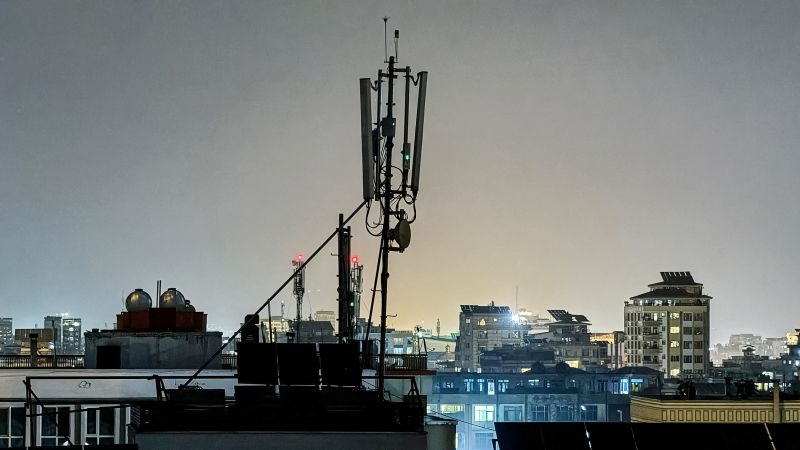Total internet blackout in Afghanistan, watchdog reports, as Taliban enforces morality measures

Afghanistan has plunged into a nationwide internet blackout, with the Taliban cutting off more than 43 million citizens from global communications as part of what it has described as “morality measures.”
Internet watchdog Netblocks said Monday in a post on X that multiple networks had been disconnected through the morning and that telephone services had also been impacted, resulting in what it said was a “total internet blackout.”
The blackout marks one of the most extensive and coordinated telecom shutdowns in Afghanistan since the Taliban returned to power in 2021, raising fears of further isolation of the Afghan people from the outside world.
The governor of northern Balkh province, Haji Zaid, said earlier this month that the Taliban’s supreme leader Mawlawi Haibatullah Akhundzada had ordered “a complete ban … on the fiber-optic cable.”
“This measure has been taken to prevent immoral activities, and an alternative system will be established within the country for essential needs,” he said in a statement, but did not clarify what was meant by “immoral activities.”
The move has already disrupted Afghan media outlets. Kabul-based Tolo News TV reported on X that the shutdown had severely affected its operations, along with other channels affiliated with its parent company, Moby Group.
The blackout has also sparked widespread concern among Afghans abroad and local activists.
Wahida Faizi, an Afghan journalist based in Denmark, described the personal toll of losing contact with her family. “It has only been a few hours since the internet was cut off in Afghanistan, but for me, it feels like a lifetime has passed,” Faizi told CNN on Monday.
“Every day after work, my mother and father’s voice brought peace to my heart … Perhaps we always complained about the slow internet in Afghanistan, but today I have realized that even faulty internet and those simple moments of video calls were such a great blessing,” Faizi said.
Activists also warn the shutdown could have devastating consequences for Afghan girls’ education.
Since the Taliban banned girls from attending school beyond grade six, many have relied on online classes provided by educators abroad or by charitable organizations. With the internet cut off, these opportunities are now under threat.
Sabena Chaudhry, communications manager at Women for Afghan Women (WAW), an Afghan women’s rights organization, told CNN that the blackout “is not only silencing millions of Afghans but also extinguishing their lifeline to connect with the outside world.”
Chaudhry, who is based in New York, said they have lost contact with staff members inside Afghanistan.



